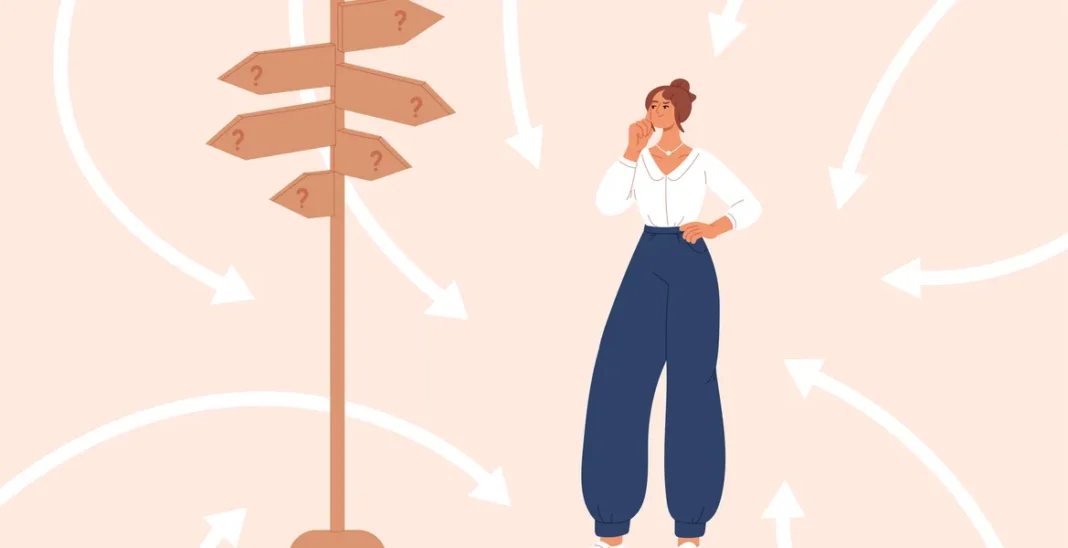In a world fueled by logic, data, and endless streams of expert advice, decision-making has evolved into an exercise in paralysis. Many of us, consciously or not, live under the illusion that the more we analyze, the better our choices will be. But here’s the paradox: when we obsessively analyze every angle, we often end up less certain, more anxious, and painfully stuck.
Take a moment and ask yourself: how often have you felt overwhelmed while trying to make the “right” decision? How often have you consulted everyone but yourself?
This constant battle between thought and instinct plays out in the lives of countless people. One client, caught in the throes of an important decision, found herself completely consumed by analysis. She hadn’t slept well in days. She’d listed pros and cons, consulted experts, and polled her friends—only to feel more confused than ever. When asked what her intuition was saying, she paused. “I don’t know,” she confessed. “I don’t really use intuition. I look to logic.”
And therein lies the issue.
While analytical thinking is an essential tool—deeply ingrained in our education and culture—it can become a double-edged sword. When overused, it disconnects us from something just as powerful: our intuitive wisdom. And when that disconnect grows too wide, anxiety creeps in, clouding our ability to make aligned, fulfilling choices.
Why Intuition Matters
Intuition is not some mystical, untrustworthy force. It’s a form of subconscious intelligence—shaped by experience, emotion, and the deep inner knowing we carry in our bodies. It doesn’t speak in spreadsheets or timelines. It whispers. And often, its quiet clarity is drowned out by the roar of our thinking minds.
Choosing instinctively isn’t about abandoning reason. It’s about allowing another voice—the voice of the gut, the heart, the soul—to have a say.
Here are five compelling reasons to start breaking out of the overthinking loop:
1. Creativity Flows More Freely
While logic tends to move in straight lines, intuition dances in spirals. It connects dots that analysis can’t see, allowing for creative leaps, innovative solutions, and unexpected insights. By letting go of the mental gridlock, we open ourselves to inspiration that feels fresh and alive.
2. Decisions Align with Soul-Level Desires
When we only follow logic, we often end up choosing what makes the most “sense”—on paper. But a life that looks good isn’t always one that feels good. Intuitive decision-making brings your subconscious desires and emotional truths into the conversation. The result? Choices that resonate deeply and offer lasting fulfillment.
3. You Build Self-Awareness
Tapping into your intuition means spending more time looking inward. You begin to notice the thought loops, fears, and limiting beliefs that once ran the show. With awareness comes the power to shift. The more in tune you are with yourself, the more expansive your life becomes.
4. You Grow Confidence and Calm
The more you listen to your inner voice, the more you learn to trust it. Decisions feel less like battlegrounds and more like intuitive affirmations. That confidence starts to radiate—reducing second-guessing, easing anxiety, and even improving your sleep.
5. Your Health Improves
Stress is not just a mental issue—it takes a toll on the body. When you constantly live in your head, your nervous system remains activated. By cultivating intuition and reducing overthinking, you support holistic well-being—mind, body, and spirit all benefit.
How to Reconnect with Your Intuition
Cultivating instinctive thinking is like learning a language you once knew as a child and slowly forgot. It takes patience, presence, and practice. But it’s absolutely within your reach. Try these five tools to quiet the noise and listen in:
• Mindfulness Practices
Meditation, breathwork, yoga, and even simple walks in nature help shift you from the churning of thought into the stillness of presence. Intuition speaks more clearly when the mind is calm.
• Stream-of-Consciousness Journaling
Empty your mind onto the page. Ask yourself, “What do I feel? What do I want?” Then write without editing or judging. Often, what begins as rambling turns into revelation.
• Embrace Silence
We live in a noisy world. Carve out moments of stillness—no podcasts, no screens, no distractions. In silence, your internal compass has room to speak up.
• Play More
Play softens the control of the rational mind and invites spontaneity. Whether it’s painting, dancing, or just being silly, engaging your playful self naturally nurtures intuition.
• Ask Yourself First
Before seeking external opinions, take a moment to ask yourself what you think and feel. Practice turning inward before reaching outward. Over time, you’ll be amazed at how reliable your inner guidance becomes.
Coming Home to Your Inner Knowing
Learning to trust your instincts isn’t about ditching your brain—it’s about balancing it with your body, your emotions, and your deeper self. Logic can build a foundation, but intuition gives it soul.
So the next time you’re stuck in the swirl of overthinking, try pausing. Breathe. Listen. The answer may already be there—quietly waiting within you.


